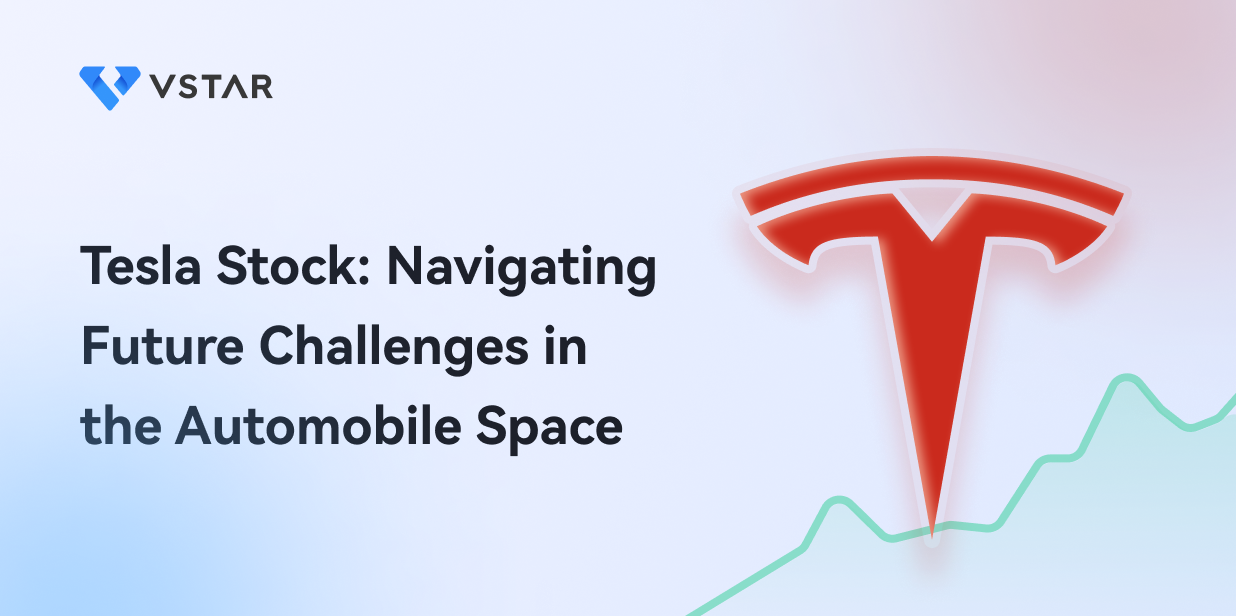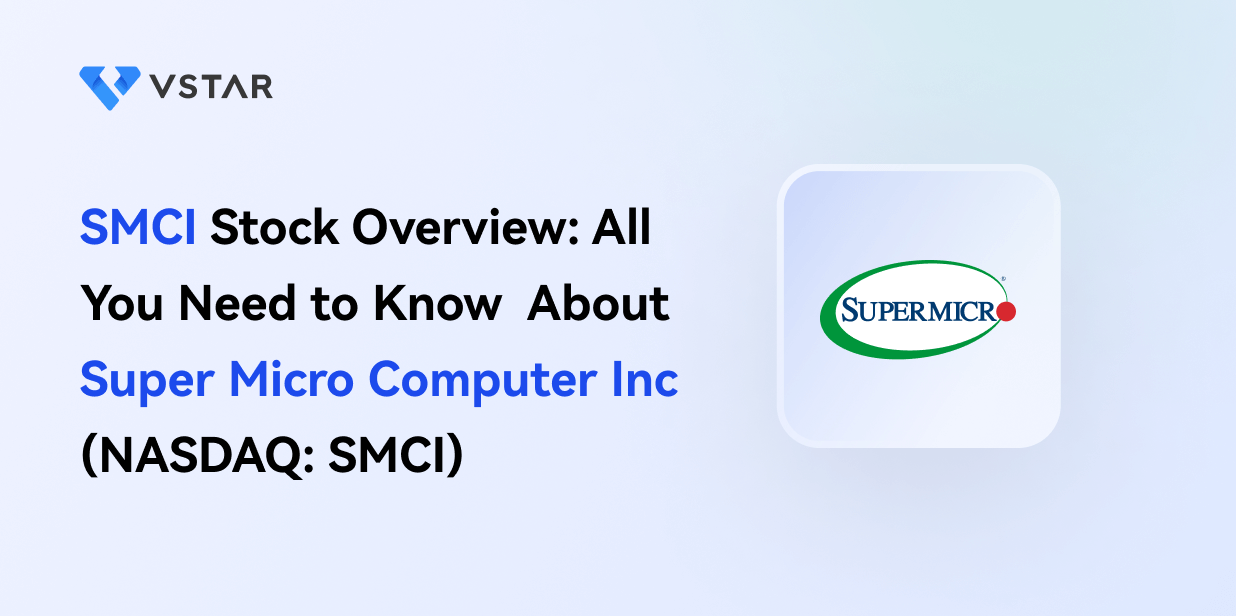As technology advances, the automobile industry has taken an incredible turn, with electric vehicles and green energy solutions gradually becoming the face of the industry.
Critical to this massive dynamism sweeping through the automobile industry is Tesla Inc. Tesla Inc. has become synonymous with innovation and sustainability in this space as its futuristic electric vehicles have revolutionized the industry.
What is Tesla Inc.?
Is there anyone who has yet to hear of Tesla? It gets even better when you discover who owns the popular EV brand. Tesla Inc. is a pioneering American electric vehicle and clean energy company spearheaded by visionary entrepreneur Elon Musk. Founded in 2003, the company has become a trailblazer in the global push toward sustainable energy and using cutting-edge technology in producing electric vehicles.
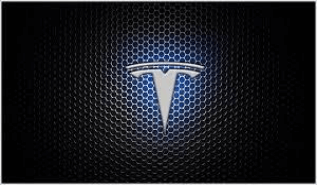
Tesla has garnered worldwide acclaim for its steadfast commitment to sustainable technology and continues to push the boundaries of what is possible in renewable energy, battery storage, and transportation.
Tesla Inc's Main Competitors In The Future
As Tesla continues to dominate the electric vehicle market, it's natural to wonder who its main competitors will be. While traditional car manufacturers like Ford, GM, and Toyota have been playing catch-up in the EV market, there are also emerging players in the industry that are worth watching. Emerging startups such as Rivian, BYD, Lucid Motors, and Nio have shown that they are no pushovers in the electric vehicle space. While these companies are still relatively new and have much smaller production capacities than Tesla, they pose a potential threat to Tesla's market dominance in the EV space.
Competitors in Traditional Market
In the traditional automotive industry, Ford and General Motors (GM) are two of the most prominent players and are often seen as Tesla's main competitors. Let's look at these two companies' histories, products, financials, and growth prospects.
Ford Motor Company
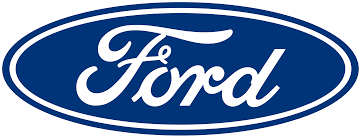
Ford is an American multinational automobile manufacturer that offers a diverse range of products and services to its customers. The company is one of America’s largest automobile producers with a strong brand reputation and diverse car portfolio. The automobile giant is headquartered in Dearborn, Michigan, and is led by CEO Jim Farley. Ford currently has a market capitalization of approximately $45.88 billion.
The company's main products include cars, trucks, and SUVs, ranging from compact to full-size models. Ford is also known for its advanced safety and convenience features, as well as its commitment to developing electric and autonomous vehicles.
Ford has a global manufacturing footprint with facilities in various regions, including North America, Europe, and Asia. The company recently announced plans to increase its production capacity for electric vehicles, with a goal of producing 600,000 electric vehicles annually by 2023.
Ford is also investing heavily in research and development to stay competitive in a rapidly changing market. The company is focused on transitioning to electric vehicles and is also exploring autonomous vehicle technology, which could further expand its product offerings and revenue streams.
However, the company faces several risks and challenges, including the transition to electric vehicles, increasing competition from new entrants, and regulatory challenges. Despite this setback, Ford has demonstrated solid financial performance, with a profitability ratio of 3.25%, a healthy balance sheet with a debt-to-equity ratio of 2.76, and a dividend yield of 5.21%.
General Motors

General Motors (GM) is headquartered in Detroit, Michigan, and is currently under the leadership of CEO Mary Barra. GM is estimated to have a market capitalization of approximately 47.01 billion USD in 2023. GM has demonstrated solid financial performance, with a profitability ratio of 6.75%, a healthy balance sheet with a debt-to-equity ratio of 1.31 and a dividend yield of 1.07%.
The company produces a variety of cars under various brands, including Chevrolet, Cadillac, Buick, and GMC. While GM is a strong force in the traditional car market, its growth strategy is focused on electric and autonomous vehicles, with plans to introduce 30 new electric models globally by 2025. In addition, GM is investing in battery technology and developing its self-driving technology.
General Motors has announced ambitious plans to increase its production capacity for electric vehicles (EVs) in North America. The company expects to build 400,000 EVs in the region from 2022 through the first half of 2024, and aims to grow its capacity to produce 1 million EVs annually in North America by 2025.
Despite its ambitious growth plans, General Motors faces several risks and challenges. One of the biggest challenges is the increasingly competitive market for electric and autonomous vehicles, with new entrants from both established automakers and startups. Additionally, GM faces regulatory challenges, particularly in meeting emissions and fuel economy standards. The company has also been impacted by supply chain disruptions and shortages, particularly in semiconductor chips.
Competitors In EV Car Market
Tesla's main competitors in the EV car market include several prominent players, including BYD, Rivian, Nio, and others. Each of these companies has its unique approach to EV manufacturing and sales and is working to carve out a larger share of the rapidly growing EV market.
BYD
BYD is fast-growing EV maker based in Shenzhen, China, and is headed by Chairman Wang Chuanfu and CEO Xie Yibo. The company is Tesla’s major competitor in China, selling the second-most EV cars in 2022, behind Tesla. As of 2023, BYD has a market capitalization of around $93 billion and reported a net income of $2.5 billion.
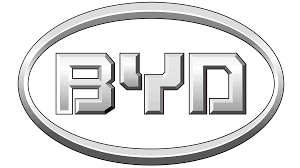
BYD Company manufactures automobiles, buses, electric bicycles, trucks, forklifts, solar panels, and rechargeable batteries. According to CN EV Post, BYD had a production capacity of 89.835 GWh in December 2022, up from 37.921 GWh at the end of 2021.
BYD's growth strategy involves expanding its EV portfolio and increasing its global market share. The company is investing in new technologies such as blade batteries, which offer improved safety and performance, and has partnered with companies like Toyota to develop electric cars.
BYD faces risks such as competition from established automakers, changing regulations, and geopolitical tensions.
Rivian
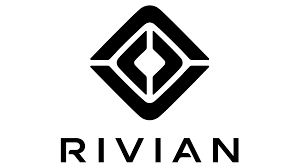
Another company competing with Tesla in the EV market is Rivian. Rivian Automotive Inc. is a car manufacturer in the United States, founded in 2009 by Robert "RJ" Scaringe. CEO RJ Scaringe leads the company, which is headquartered in Irvine, California. Rivian specializes in electric vehicles such as the R1T pickup truck and R1S SUV. The company's market capitalization was around $12.63 billion in 2023. However, the company has not yet gone public, so its financials are not publicly available.
Rivian is currently building its first factory in Normal, Illinois, which is expected to have an annual production capacity of 200,000 vehicles. The company plans to start delivering its R1T pickup truck and R1S SUV to customers in June 2023, with a production goal of 40,000 vehicles in the first year.
Rivian has received significant attention and investment from major companies, indicating a positive outlook for its growth prospects. The EV startup has raised over $10 billion from various investors, including Amazon, Ford, and Cox Automotive. The company is expected to expand its production capacity and product lineup in the coming years, with plans to introduce a delivery van and an electric sports car in the future.
Rivian faced some challenges in 2022 due to semiconductor shortages and rising component costs, resulting in price increases for their vehicles and a reduced workforce. However, the company also made notable achievements, such as being named in TIME's list of the 100 Most Influential Companies and signing an agreement with Mercedes-Benz Group to form a joint venture to invest in and operate a factory in Europe.
NIO

NIO Inc., is another Chinese EV producer and is based in Shanghai. The company is a direct competitor to Tesla in the electric vehicle (EV) market. CEO William Li currently leads the company, and as of March 2023, NIO has a market cap of $14.95 billion. In 2022, NIO reported a net loss of US$838.9 million. The company has 1.67 billion shares outstanding, and an EPS of -$1.27. The PE ratio is not available, but the forward PE is 434.78. NIO neither pays dividends nor has an ex-dividend date.
NIO specializes in the production of premium smart electric vehicles, including SUVs and sedans. The company also provides charging solutions and other services to its customers.
NIO has an annual production capacity of 150,000 vehicles, which includes its existing manufacturing facilities in Hefei, Anhui province and its new facility in Xiangyang, Hubei Province. NIO also plans to build a new factory in Beijing, which is expected to further increase its production capacity.
NIO invests in cutting-edge technologies, such as solid-state batteries, and partners with companies like Intel to develop autonomous driving technology.
NIO's challenges include intense competition in the EV market and production delays. Despite these challenges, NIO demonstrated strong revenue growth in 2023, with a revenue growth rate of 128.7%.
Lucid Motors
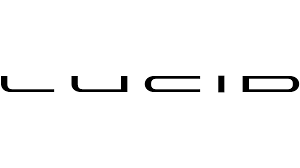
Lucid Motors is also a significant competitor of Tesla in the electric vehicle (EV) market. Founded in 2007 by Bernard Tse and Sam Weng, the company is headquartered in Newark, California, and is currently led by CEO Peter Rawlinson.
Lucid Motors had a market capitalization of $13.821 billion, and its revenue for 2022 was over $608 million. However, the company reported a net loss of $1.12 billion for the same period. Lucid Motors is expected to report its first-quarter earnings for 2023 in May.
The EV company currently has a production capacity of 34,000 units per year at its AMP-1 facility in Arizona. The company is adding a second assembly line for the production of its Gravity SUV, which is expected to launch in 2024, and increase the plant's annual production capacity to 90,000 vehicles. The company intends to increase its production capacity with the construction of a new factory in Arizona. However, the company has faced production issues in the past, that have led to delays in deliveries.
Just like most upcoming players in the EV space, the company's growth strategy is directed toward increasing its global market share. Lucid has also collaborated on battery technology with companies such as Samsung SDI and LG Chem.
The company faces challenges related to the development of autonomous driving technology, which is critical to the success of the company's business model.
Comparing Tesla with its Main Competitors in the Traditional Market
Tesla's primary focus is on the electric vehicle market, and as such, it does not compete directly with traditional automakers in the non-EV market. However, Tesla Inc. has been expanding its business into the traditional market, and some big names in the traditional market have also begun the production of electric vehicles.
Energy Efficiency And Cost
One of the main reasons Tesla is often regarded as a leader in the automobile market is its use of sustainable and renewable energy sources. While Ford and GM have made strides in this area, Tesla's commitment to clean energy is evident in its solar panels, energy storage solutions, and charging network. This has not only made Tesla more environmentally friendly, but it has also given the company a competitive edge in terms of energy efficiency and cost savings.
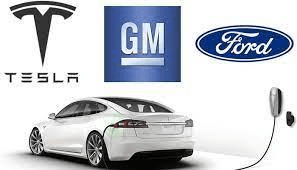
Advanced Updates
Tesla has continuously pushed the boundaries with features like Autopilot, full self-driving, and over-the-air software updates. Although Ford and GM have versions of these features, Tesla's technology is more advanced and user-friendly.
Market Capitalization
Tesla, also, has a better market capitalization. Despite selling far fewer vehicles, the company's market capitalization has surpassed that of traditional automakers such as Ford and General Motors. This is partly due to the company's high growth potential and its leadership in the EV market.
Integrated Production Processes
Tesla's manufacturing and supply chain management approach also distinguishes it from traditional automakers. The company has a well-integrated production process, from battery cell production to final assembly, allowing it greater control over quality and cost.
It is, however, essential to note that Ford and GM still have advantages in areas such as production capacity and established brand recognition. On the flip side, Tesla is more technologically advanced. Ford and GM can produce and sell vehicles on a much larger scale than Tesla, and they have a long-standing reputation in the industry.
Comparing Tesla with Its Main Competitors in the EV Market
Even though Tesla Inc. is a market leader and pioneer in the EV market, the company's dominance is not without challenge. China is Tesla’s second-largest market and also the top market for EVs globally. With emergence of several EV startups in China, the competition in the EV space has become more fierce.
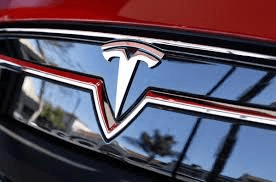
Innovation
Tesla Inc. continues to stand out from its competitors with its innovative technologies, including its automated driving platform and automated production systems. One of Tesla's most notable innovations is its Autopilot technology, which enables partially automated driving. This technology uses sensors, cameras, and radars to help the car navigate and make decisions on the road. Tesla is also working on a more advanced version of this technology called Full Self-Driving, which it plans to release in the future.
In addition to its automated driving technology, Tesla has also developed automated production systems that allow it to manufacture vehicles at a faster pace. Tesla's factories use advanced robots and software to streamline the production process and reduce costs.
Entertainment
Moreover, Tesla edges out its competitor when it comes to entertainment. Tesla incorporates features such as in-car gaming and streaming services into their cars, setting a new standard for in-car entertainment.
Advanced Models
Tesla Inc. has focused its company strategy on the constant iteration of its classic models, such as the Model S, Model X, and Model 3. This has allowed Tesla to appeal to a broader range of consumers, solidifying the company's position as a market leader in the EV industry.
The release of the new model Cybertruck has generated significant buzz in the automotive industry and among consumers. The vehicle is expected to offer unique features such as a durable stainless steel body, seating for six people, and ample exterior storage space. The Cybertruck's futuristic design has also attracted attention, with its sharp angles and angular lines setting it apart from traditional pickup trucks. The vehicle is slated to go into production by the end of 2023, with the first deliveries expected in early 2024. Overall, the Cybertruck promises to be a game-changer in the pickup truck market and is eagerly anticipated by many.
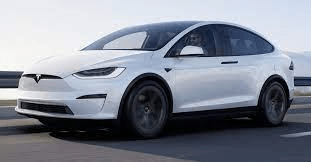
Tesla ranked first in global BEV sales in 2022 with the production of 1,313,851 units. China’s leading EV manufacturer, BYD, was second with 911,141 units. When compared to its competitors in the EV market, Tesla's brand recognition, production capacity, and charging infrastructure is unmatched.
TSLA Investment Potential in 2023
With a rebound in the stock price, Tesla (TSLA) stock has been in the spotlight for potential investors in 2023. Tesla is one of the most popular and profitable stocks in the market currently after a massive fourth quarter rise in 2022. Tesla often triggers heated discussions in the market with its CEO Elon Musk always making headlines on social media and the company’s business strategies subject to lots of debates.
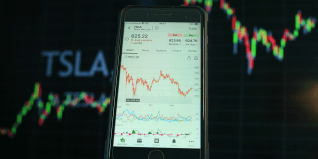
Despite experiencing some hiccups, Tesla stock has shown an impressive compounded annual growth rate of 56.8% over the past ten years. Although the consensus recommendation from analysts for Tesla stock stands at "hold," 21 out of 36 analysts have rated the stock as a "buy," indicating the potential for development in the long term.
The average price target for TSLA stock over the next 12 months is $218.95 a share, with the highest prediction of $430.33 and the lowest of $33.33. This suggests an upside potential of 7.98% if that target is met.
Looking towards the future, third-party forecasting services such as Wallet Investor and Gov Capital have estimated a potential five-year forecast of $564.24 and $2,326.138 per share, respectively, indicating a significant upside potential for TSLA stock in the long term.
Overall, TSLA stock has the potential for development, long-term holding, and short-term CFD trading. However, as with any investment decision, it is essential to conduct thorough research and consider one's own investment goals and risk tolerance before making a decision.
Why Trade Tesla Stock (TSLA) CFD with VSTAR?
Trading Tesla Stock (TSLA) CFDs with VSTAR offers several benefits to traders looking to take advantage of Tesla’s price movement in this volatile market.
● VSTAR provides access to a wide range of global assets, including stocks, indices, forex, commodities, metals, and energy, allowing traders to diversify their portfolios and take advantage of various market conditions.
● VSTAR offers competitive spreads, fast execution, and top-tier liquidity, ensuring that traders can enter and exit trades quickly and efficiently. Advanced trading tools, including charting tools and technical indicators, are also available, allowing traders to make informed decisions based on market trends and analysis.
● Furthermore, VSTAR offers educational resources to enhance knowledge, including eBooks, market analysis, and more. The platform provides easy onboarding and fast deposits and withdrawals on multiple channels, ensuring a seamless trading experience.
● Trading Tesla Stock (TSLA) CFDs with VSTAR provides traders with a world-class multi-asset broker that offers competitive costs, fast execution, superior trading tools, and conditions for professional clients.
Bottom Line
Tesla Inc. has shown remarkable growth and potential in the electric vehicle market over the past decade. While there may be concerns about competition and potential regulatory changes, the company has proven its ability to adapt, take risks, and innovate in a rapidly evolving industry.
Regarding investment, the short-term outlook for Tesla appears favorable, with recent price cuts and the potential for continued growth in the EV market. However, as with any investment, there are risks and uncertainties. Tesla's track record and potential for future growth may make it a promising option for those with a long-term investment strategy. For those with a short-term investment strategy, trading Tesla stock (TSLA) CFD with VSTAR is a viable option. VSTAR offers fast execution, competitive spreads, and top-tier liquidity, and also provides traders with the tools and conditions necessary for successful short-term trading.
FAQs
What are the threats to Tesla?
Tesla is currently up against stiff competition from alternative fuel vehicles and self-driving technology from other EV startups.
What is Tesla's most significant weakness?
Tesla Inc.'s main weakness is its high price.
What is Tesla's competitive advantage?
Tesla's range is its most competitive advantage. When compared to competitors, Tesla cars with the same amount of battery weight can travel further without needing to recharge.
Will Tesla stock go up in 2023?
The stock market was generally down in 2022 due to the looming recession, rising interest rates, and inflation. This affected Tesla's stock, which was down over 50% in 2022. However, hopes are high for a good 2023.
*Disclaimer: The content of this article is for learning purposes only and does not represent the official position of VSTAR, nor can it be used as investment advice.
